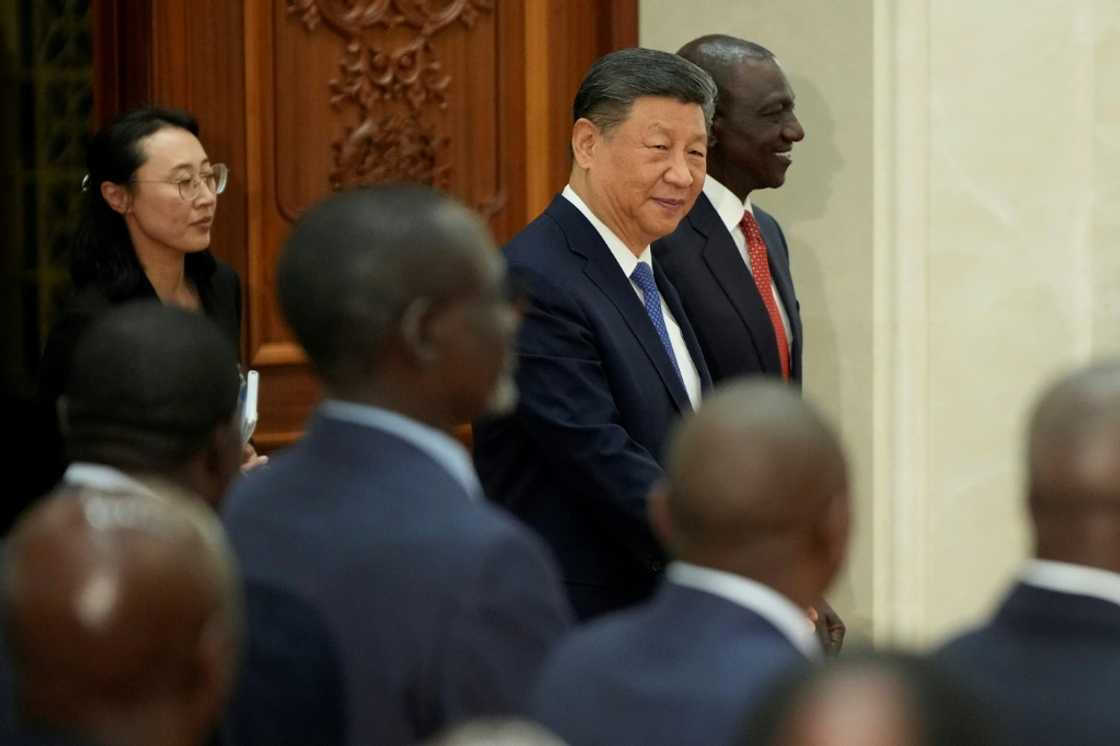China Set to Square Off in Upcoming Trade Talks With U.S., Analysts Say

An impressive array of resources that encompasses entry into its extensive marketplace along with the capability to endure financial hardships will enable Beijing to adopt a tough stance in future trade negotiations with the United States in Geneva, according to experts.
Trade between the globe’s top two economic powerhouses has almost come to a standstill following multiple tariff impositions from former U.S. President Donald Trump, aimed ostensibly at countering China’s perceived involvement in an intense fentanyl epidemic.
As part of his strategy to recalibrate the trading dynamics and stop what he sees as unfair practices against the U.S., Trump has imposed tariffs that have escalated significantly for numerous Chinese items, reaching up to 145%. For certain specific merchandise, these combined levies can be astonishingly steep, climbing all the way up to an impressive 245%.
Beijing has retaliated with 125 percent tariffs on U.S. imports and implemented various actions aimed at American companies.
However, following weeks of escalating tensions that caused global markets to nosedive, both nations will convene over the weekend for an opportunity to initiate dialogue and ease relations.
Washington isn't anticipating a significant trade agreement that might tackle Trump's long-standing concern regarding the substantial trade gap with the export giant. However, they hope that both parties can start to ease tensions at this stage.
Beijing has pledged to remain firm and reiterated that its requirement for the removal of all US tariffs stays "unmodified."
However, analysts indicate that China is not urgently seeking to strike an agreement.
"Beijing has the ability to cause some discomfort for the United States," said Chong Ja Ian, an associate professor of political science at the National University of Singapore, in an interview with AFP.
Chong noted that China's primary advantages heading into the negotiations include its massive domestic marketplace, along with "crucial technologies and dominance over a substantial share of refined rare earth elements."
'No wild bluster'
Dylan Loh, an assistant professor from Singapore's Nanyang Technological University, stated that compared to how they handled things during Trump's first term, China’s reaction to his tariffs this time around has been more “mature.”
He clarified, 'There isn’t any uncontrolled boasting.'
"I think they have learnt from their earlier responses and they know that they cannot be led by the nose," he said.
Analysts say China has been able to take more of a hardline posture to Trump's tariffs this time, despite its struggling economy.
"It still has meaningful retaliatory tools and -- just as important -- staying power," said Lizzi Lee from the Asia Society Policy Institute's Center for China Analysis.
China's autocratic system, she said, allowed it "to absorb economic pain in ways democracies often cannot".
Beijing has simultaneously initiated a charm campaign designed to strengthen trade relationships with countries in Southeast Asia and Europe, presenting itself as a more consistent and dependable ally compared to the unpredictable Trump administration.
This maneuver enabled Beijing to create "cushions" against the uncertainties of a trade war, according to Lee.
She noted that it wouldn’t immediately supplant the US market, but each additional step toward diversification decreases risk and enhances bargaining power.
It doesn't mean China isn't suffering.
Last year, sales of Chinese products to the U.S. amounted to over $500 billion, which represents 16.4 percent of America's exports, as reported by China's customs statistics.
But as the effects of the trade war sunk in, China's factory activity shrank in April, with Beijing blaming a "sharp shift" in the global economy.
While not as colossal as China's export levels, US shipments to the country last year were a considerable $143.5 billion, according to the US Trade Representative website.
"Even in the case that one of the two countries would clearly have 'the upper hand', it is still worse off economically than before the trade war started," said Teeuwe Mevissen, senior China economist at Rabobank.
Beijing and Washington have realized that complete decoupling is not so straightforward.
Talks about talks
Policymakers this week unveiled measures to boost domestic consumption -- a sign that leaders are "not panicking but feeling some pressure", said Shehzad Qazi, managing director of China Beige Book.
Beijing will need to strap in for potentially long and drawn-out negotiations with Washington that could bring "much more volatility along the way", said Qazi.
Analysts broadly agree that upcoming talks are a first step towards a de-escalation of tensions that could, a long way down the line, lead to a lifting of tariffs.
"A best-case scenario would be agreement around a process to enter future negotiations," Ryan Hass, senior fellow at Brookings Institution, told AFP.
Beijing could insist on receiving the same 90-day waiver on tariffs that other countries had received, he suggested.
And China's insistence that the Switzerland talks came at the request of Washington suggests it is the United States that is desperate for a deal, said Dan Wang, China Director at the Eurasia Group.
"The fact that it is happening is showing some concessions already on the US side."
Post a Comment for "China Set to Square Off in Upcoming Trade Talks With U.S., Analysts Say"